Symaxx
Iron
- Joined
- Jul 2, 2025
- Posts
- 32
- Reputation
- 20
Skin Looksmaxxing Guide: How To Achieve Clearer Skin
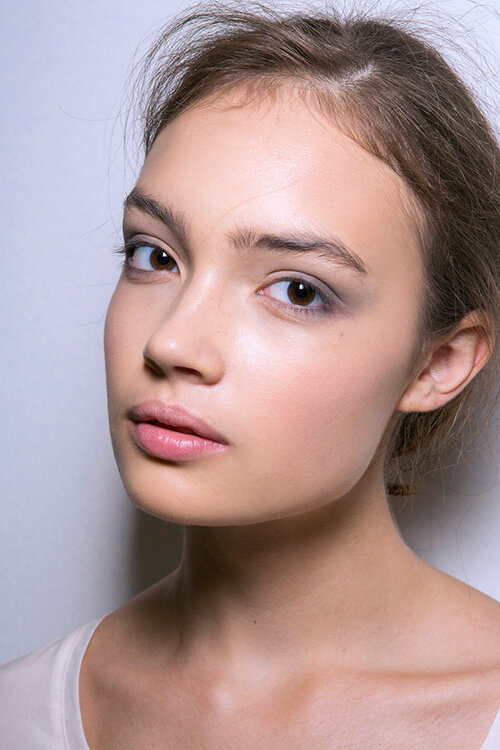
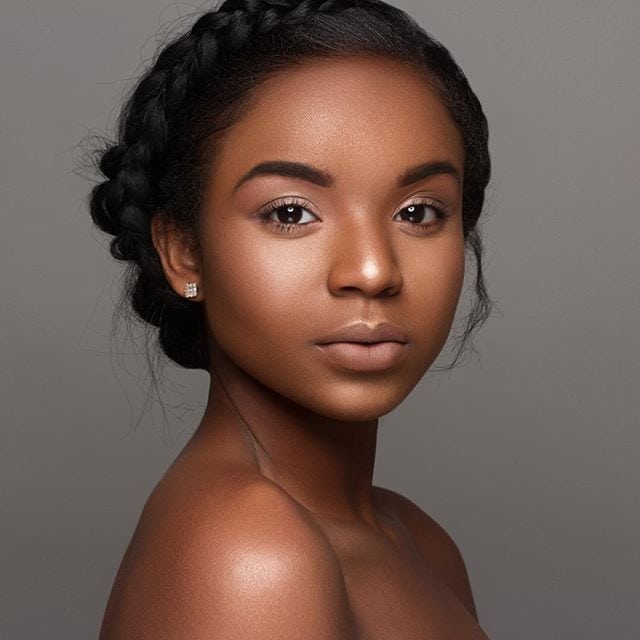
Table Of Contents
Introduction:
• Understanding Skin Types
• What Skin Problems & Causes
• The 4 fundamentals of Skincare: Cleanse, Moisturize, Exfoliate, Sunscreen
• Nutrition & Diet for Skin Health
• The Microbiome and Its Role in Skin
• Skincare Products & Ingredients That Actually Work
• Lifestyle Factors: Sleep, Stress, and Environment
• Targeted Skincare by Skin Type
• Anti-Aging & Retaining Youthful Skin
• Conclusion
Introduction
Clear skin is important for appearance it signals youth and health. By the end of this thread, you'll know everything about achieving Clearer Skin for any Skin type, combating acne, pigmentation, dryness, oiliness, and preventing early aging.
1. Understanding Skin Types
To achieve clearer skin, we first need to understand your skin type.
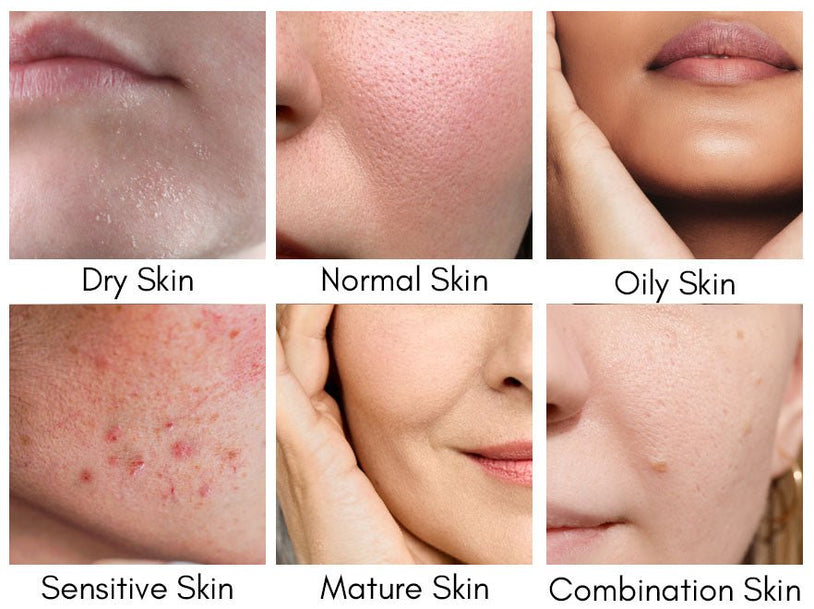
1. Normal Skin: Is the “sweet spot” of all skin types. Not too dry. Not too oily.
2. Oily Skin: Is Shiny, prone to acne, and has enlarged pores.
3. Dry Skin: Is Flaky, tight, and dull
4. Combination Skin: Is Oily T-zone, dry/normal other spots.
5. Sensitive Skin: Is easily irritated, prone to redness or burning.
6. Mature Skin: This is when your skin loses elasticity and hydration, and fine lines appear.
Other variations: 7. Acne-Prone Skin: This is when your skin breaks out regardless of oil level.
8. Dehydrated Skin: This occurs when your skin lacks water, and it can feel tight even if oily.
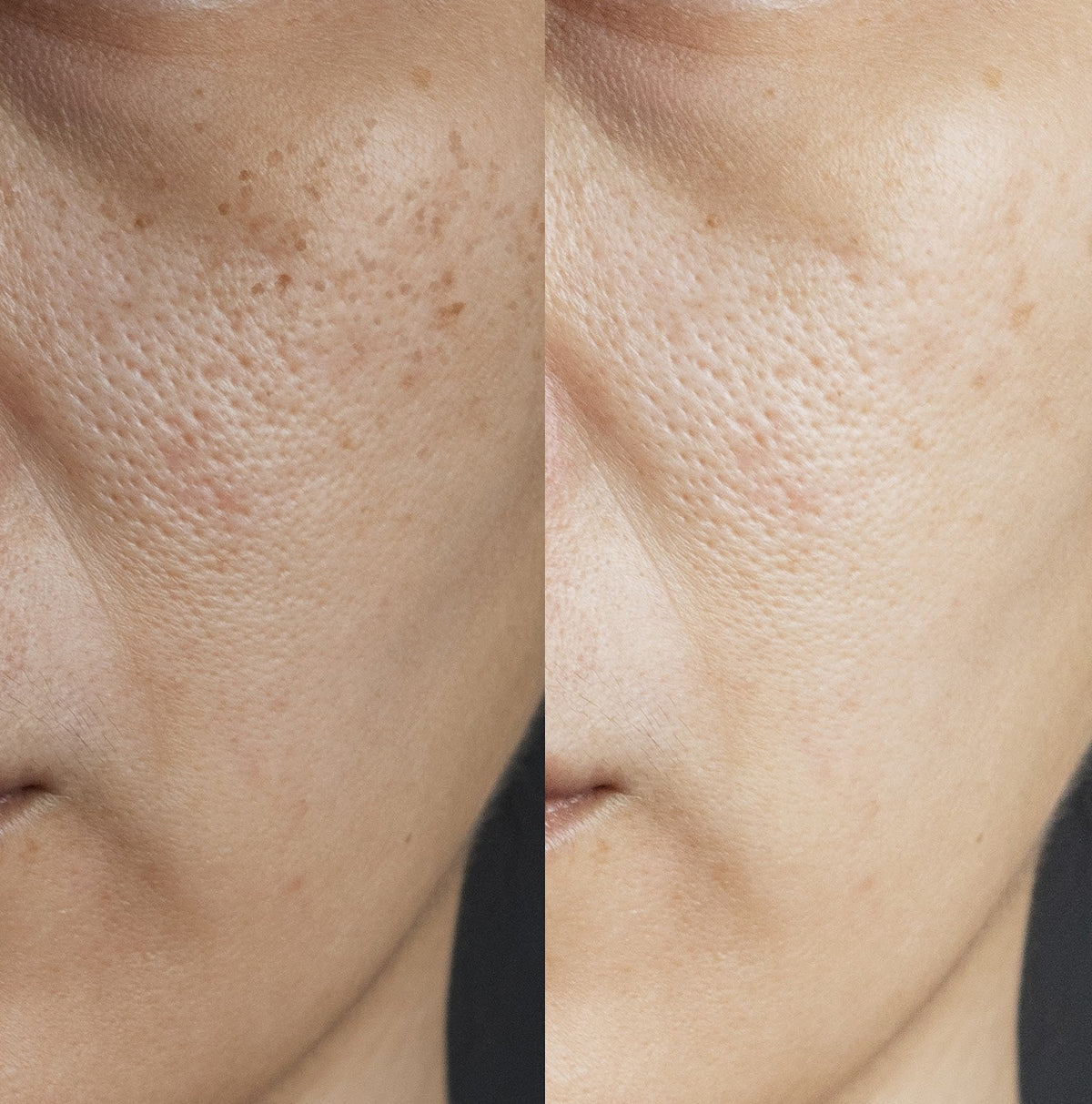
What Causes Skin Problems?
To understand skin problems, we first need to understand the skin itself:
The skin is the body’s largest organ, made of water, protein, fats, and minerals. Your skin protects you from germs and regulates body temperature. And helps you feel sensations like hot and cold.
• Acne, pimples, blackheads, cysts, etc
The main causes of Acne: overactive oil (sebaceous) glands, abnormal shedding of dead skin cells, and rapid growth of acne-causing bacteria. All of these lead to clogged pores; in short, acne is just blocked pores from oil, dead skin, or both.
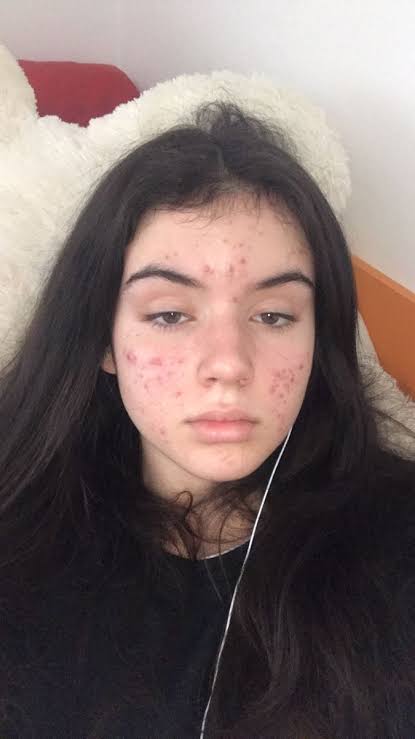
• Whiteheads
Whiteheads are a type of acne (acne vulgaris). When Oil and dead skin close off hair follicles or sebaceous glands (oil glands) and form a closed bump on your skin. Inflammation is caused by increased sebum (oily material produced by the sebaceous gland) production. Abnormal formation of keratin (the protein that helps make your hair, skin, and nails.) : (DON'T POP THEM REALLY!!!) Popping them only worsens inflammation, worsens acne, and causes scarring. And damage skin
: (DON'T POP THEM REALLY!!!) Popping them only worsens inflammation, worsens acne, and causes scarring. And damage skin
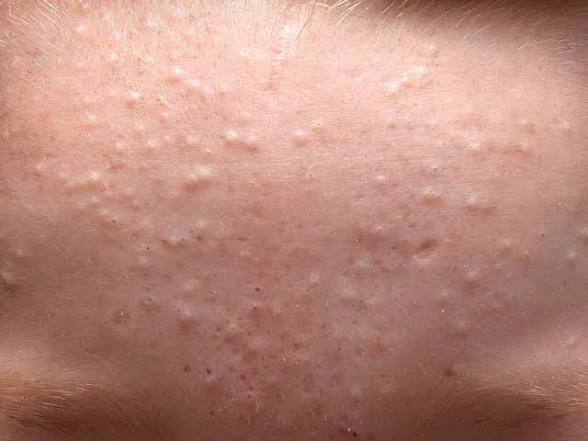
• Uneven skin tone
Uneven skin tone is caused by overproduction of melanin, which results in dark patches or spots. The main causes: are sun exposure, and hormonal fluctuations. This can cause dead skin to accumulate, making spots appear darker.
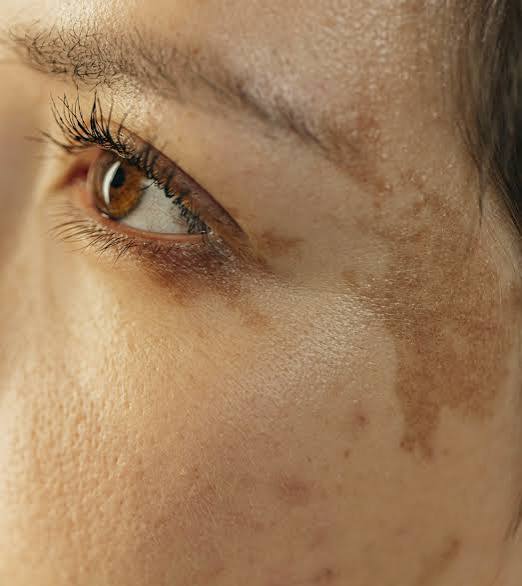
• Textured skin
Textured skin is caused by sun damage, acne, and aging, leading to problems such as enlarged pores, scars, and reduced collagen. Other factors, such as dehydration and buildup of dead skin cells from poor exfoliation, also contribute. The more textured the skin, the more dead skin buildup; the smoother the skin, the less.
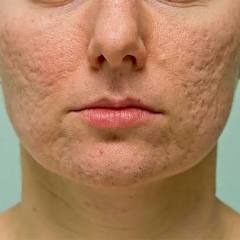
• Acne Scars
Acne Scars form when inflammation disrupts collagen production during healing. Additionally, things like picking at pimples, severe acne, or even persistent acne can make it worse. Deep breakouts damage the tissue beneath the skin, damaging the tissue beneath the skin, and leaving scars.
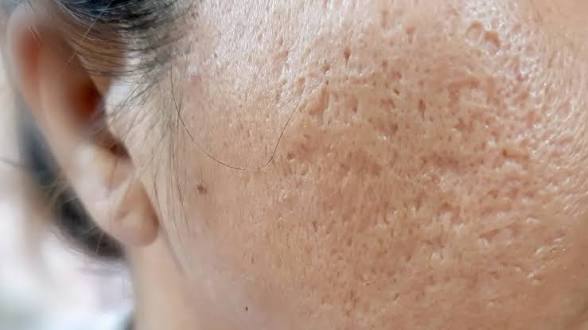
Wrinkles, Fine Lines, etc.
Sadly
Things such as Wrinkles and Fine lines are caused by:
Natural aging, sun exposure, and lifestyle choices. A lack of collagen, hyaluronic acid, or sleep can make it worse. Bone degradation, collagen loss, and hyaluronic acid deficiency all play a role. Additionally, it might be a bone problem: bones can leave a small depression in the skin, with fine lines forming around it. In this case, surgery may be needed to fix this.
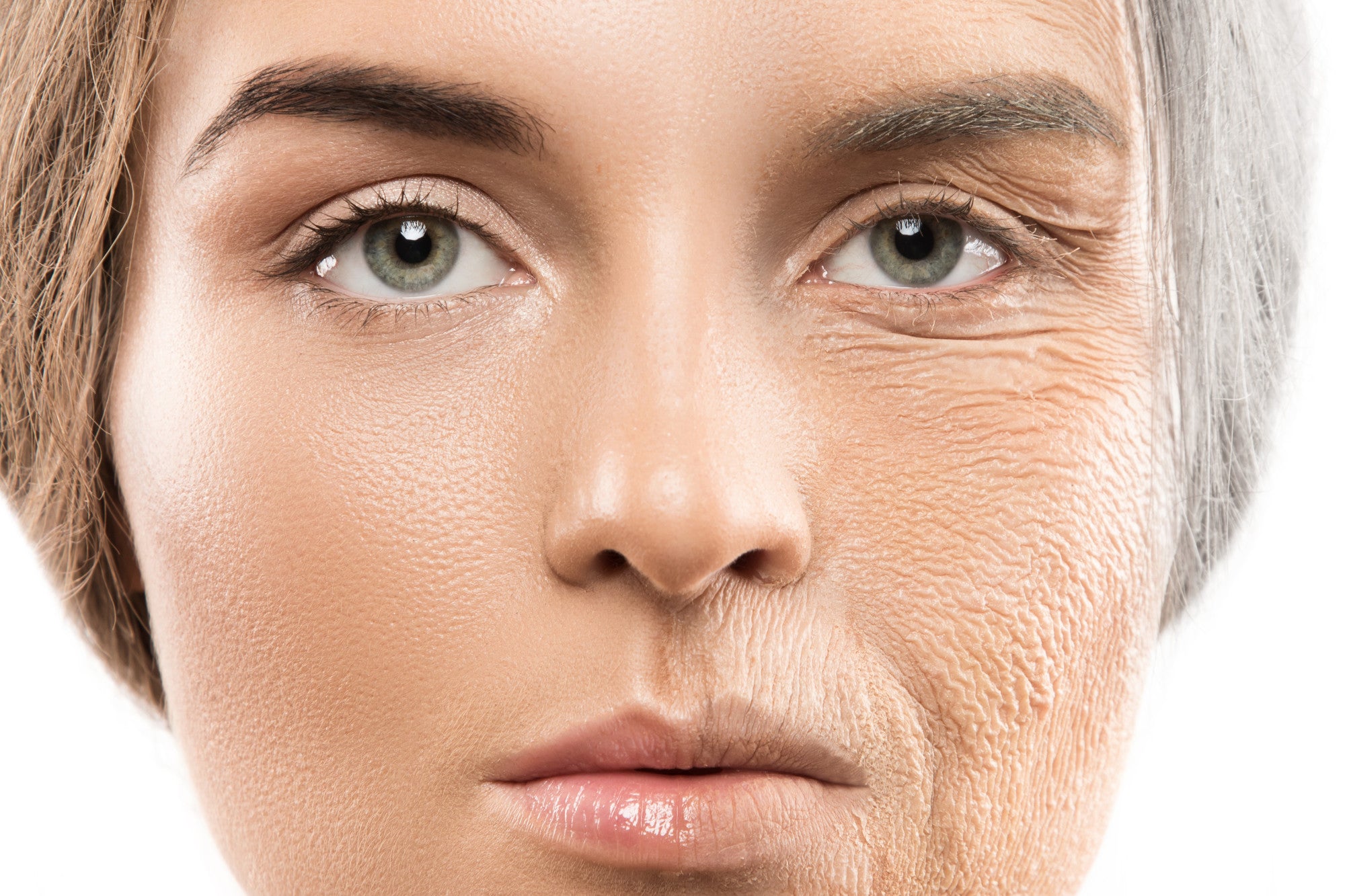
• To fix acne scars:
• Laser resurfacing
• Microneedling
• Chemical peels
• Dermal fillers
• Subcision
• Punch excision/grafting
• Dermabrasion
• To fix Hyperpigmentation:
• Topicals:
Vitamin C, retinoids, hydroquinone (prescription).
• Exfoliation:
Glycolic acid, lactic acid (AHAs).
• Professional procedures
• Chemical peels
• Laser/light therapy
• Microdermabrasion
Fundamentals Of Skincare:
• Cleanser: Removes dirt and clears bacteria buildup.
• Moisturizer: Keeps skin hydrated and prevents dryness.
• Exfoliation: Prevents dead-skin buildup and smooths the skin. Do 1–2 times a week.
• Sunscreen: Protects against sun damage and premature aging
•Nutrition and Diet protocols:
• Water: Keeps the skin plump and flushes out toxins and hydration.
• Antioxidants: Vitamins such as A, C, E, and zinc fight free radicals and support collagen.
• Healthy fats: Omega-3s from fish, flax, and chia reduce inflammation and protect the skin barrier.
• Protein: Good for collagen and repair eggs, beans, lean meats.
• Limit sugar & processed foods: Can spike insulin and worsen acne.
• Probiotics & fermented foods: They support gut and skin health.
• Balanced diet: Eat things such as fruits, vegetables, whole grains, and lean proteins.
Avoid following extreme diets: (PLS!) Don’t blindly follow vegan, carnivore, or other diets.
• Microbme You are full of bacteria, literally! You have more bacteria that live in your gut than cells in your body.
Your gut microbiome is made up of a bunch of microbes bacteria, viruses, archaea, and eukaryotes. Microbes aren’t just in your gut, btw, your skin has its own microbiome too. Your skin microbiome affects how healthy your skin looks by protecting it, controlling inflammation, and keeping pH balanced. When this gets messed up, it can lead to things such as acne, eczema, or a weak skin barrier. That’s why having a healthy microbiome is so important!
To keep your microbiome healthy just follow this:
Eat fiber, fruits, vegetables, and fermented foods.
Avoid processed junk, sugar, and alcohol.
Manage stress, exercise, stay hydrated, and get enough sleep 7–9 hours for adults, 8–10 for teens.
Here’s a YT video that goes deeper into it.
1. Source:
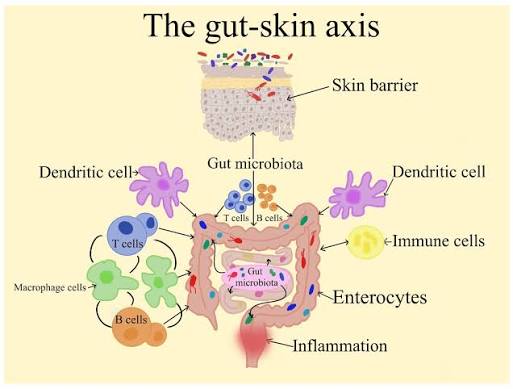
Skin care products linked below :
:
1. Sunscreen

2. Cleanser
3. Moisturizer

 www.target.com
www.target.com
4. Exfoliator & Skin texture

 www.target.com
www.target.com
5. Wrinkles, Fine Lines, etc.
https://amzn.to/3xcADAM and https://amzn.to/3x8YUrd
6. Collagen
https://amzn.to/3mlwghK
7. Skin tone
Conclusion: Clear skin is important for signaling health % youth.
Links for studies:
1. Water/Hydration

 pubmed.ncbi.nlm.nih.gov
pubmed.ncbi.nlm.nih.gov

 pubmed.ncbi.nlm.nih.gov
pubmed.ncbi.nlm.nih.gov

 pubmed.ncbi.nlm.nih.gov
pubmed.ncbi.nlm.nih.gov
2. Omega‑3 / Healthy Fats

 pubmed.ncbi.nlm.nih.gov
pubmed.ncbi.nlm.nih.gov
 pmc.ncbi.nlm.nih.gov
pmc.ncbi.nlm.nih.gov
3. Probiotics / Microbiome
 pmc.ncbi.nlm.nih.gov
pmc.ncbi.nlm.nih.gov

 www.sciencedirect.com
www.sciencedirect.com
4. Antioxidants
 pmc.ncbi.nlm.nih.gov
pmc.ncbi.nlm.nih.gov
 pmc.ncbi.nlm.nih.gov
pmc.ncbi.nlm.nih.gov
5. Proteins


 www.sciencedirect.com
www.sciencedirect.com
BRUTAL BP CONTENT


Table Of Contents
Introduction:
• Understanding Skin Types
• What Skin Problems & Causes
• The 4 fundamentals of Skincare: Cleanse, Moisturize, Exfoliate, Sunscreen
• Nutrition & Diet for Skin Health
• The Microbiome and Its Role in Skin
• Skincare Products & Ingredients That Actually Work
• Lifestyle Factors: Sleep, Stress, and Environment
• Targeted Skincare by Skin Type
• Anti-Aging & Retaining Youthful Skin
• Conclusion
Introduction
Clear skin is important for appearance it signals youth and health. By the end of this thread, you'll know everything about achieving Clearer Skin for any Skin type, combating acne, pigmentation, dryness, oiliness, and preventing early aging.
1. Understanding Skin Types
To achieve clearer skin, we first need to understand your skin type.

1. Normal Skin: Is the “sweet spot” of all skin types. Not too dry. Not too oily.
2. Oily Skin: Is Shiny, prone to acne, and has enlarged pores.
3. Dry Skin: Is Flaky, tight, and dull
4. Combination Skin: Is Oily T-zone, dry/normal other spots.
5. Sensitive Skin: Is easily irritated, prone to redness or burning.
6. Mature Skin: This is when your skin loses elasticity and hydration, and fine lines appear.
Other variations: 7. Acne-Prone Skin: This is when your skin breaks out regardless of oil level.
8. Dehydrated Skin: This occurs when your skin lacks water, and it can feel tight even if oily.

What Causes Skin Problems?
To understand skin problems, we first need to understand the skin itself:
The skin is the body’s largest organ, made of water, protein, fats, and minerals. Your skin protects you from germs and regulates body temperature. And helps you feel sensations like hot and cold.
• Acne, pimples, blackheads, cysts, etc
The main causes of Acne: overactive oil (sebaceous) glands, abnormal shedding of dead skin cells, and rapid growth of acne-causing bacteria. All of these lead to clogged pores; in short, acne is just blocked pores from oil, dead skin, or both.

• Whiteheads
Whiteheads are a type of acne (acne vulgaris). When Oil and dead skin close off hair follicles or sebaceous glands (oil glands) and form a closed bump on your skin. Inflammation is caused by increased sebum (oily material produced by the sebaceous gland) production. Abnormal formation of keratin (the protein that helps make your hair, skin, and nails.)
 : (DON'T POP THEM REALLY!!!) Popping them only worsens inflammation, worsens acne, and causes scarring. And damage skin
: (DON'T POP THEM REALLY!!!) Popping them only worsens inflammation, worsens acne, and causes scarring. And damage skin 
• Uneven skin tone
Uneven skin tone is caused by overproduction of melanin, which results in dark patches or spots. The main causes: are sun exposure, and hormonal fluctuations. This can cause dead skin to accumulate, making spots appear darker.

• Textured skin
Textured skin is caused by sun damage, acne, and aging, leading to problems such as enlarged pores, scars, and reduced collagen. Other factors, such as dehydration and buildup of dead skin cells from poor exfoliation, also contribute. The more textured the skin, the more dead skin buildup; the smoother the skin, the less.

• Acne Scars
Acne Scars form when inflammation disrupts collagen production during healing. Additionally, things like picking at pimples, severe acne, or even persistent acne can make it worse. Deep breakouts damage the tissue beneath the skin, damaging the tissue beneath the skin, and leaving scars.

Wrinkles, Fine Lines, etc.
Sadly
Things such as Wrinkles and Fine lines are caused by:
Natural aging, sun exposure, and lifestyle choices. A lack of collagen, hyaluronic acid, or sleep can make it worse. Bone degradation, collagen loss, and hyaluronic acid deficiency all play a role. Additionally, it might be a bone problem: bones can leave a small depression in the skin, with fine lines forming around it. In this case, surgery may be needed to fix this.

• To fix acne scars:
• Laser resurfacing
• Microneedling
• Chemical peels
• Dermal fillers
• Subcision
• Punch excision/grafting
• Dermabrasion
• To fix Hyperpigmentation:
• Topicals:
Vitamin C, retinoids, hydroquinone (prescription).
• Exfoliation:
Glycolic acid, lactic acid (AHAs).
• Professional procedures
• Chemical peels
• Laser/light therapy
• Microdermabrasion
Fundamentals Of Skincare:
• Cleanser: Removes dirt and clears bacteria buildup.
• Moisturizer: Keeps skin hydrated and prevents dryness.
• Exfoliation: Prevents dead-skin buildup and smooths the skin. Do 1–2 times a week.
• Sunscreen: Protects against sun damage and premature aging
•Nutrition and Diet protocols:
• Water: Keeps the skin plump and flushes out toxins and hydration.
• Antioxidants: Vitamins such as A, C, E, and zinc fight free radicals and support collagen.
• Healthy fats: Omega-3s from fish, flax, and chia reduce inflammation and protect the skin barrier.
• Protein: Good for collagen and repair eggs, beans, lean meats.
• Limit sugar & processed foods: Can spike insulin and worsen acne.
• Probiotics & fermented foods: They support gut and skin health.
• Balanced diet: Eat things such as fruits, vegetables, whole grains, and lean proteins.
Avoid following extreme diets: (PLS!) Don’t blindly follow vegan, carnivore, or other diets.
• Microbme You are full of bacteria, literally! You have more bacteria that live in your gut than cells in your body.
Your gut microbiome is made up of a bunch of microbes bacteria, viruses, archaea, and eukaryotes. Microbes aren’t just in your gut, btw, your skin has its own microbiome too. Your skin microbiome affects how healthy your skin looks by protecting it, controlling inflammation, and keeping pH balanced. When this gets messed up, it can lead to things such as acne, eczema, or a weak skin barrier. That’s why having a healthy microbiome is so important!
To keep your microbiome healthy just follow this:
Eat fiber, fruits, vegetables, and fermented foods.
Avoid processed junk, sugar, and alcohol.
Manage stress, exercise, stay hydrated, and get enough sleep 7–9 hours for adults, 8–10 for teens.
Here’s a YT video that goes deeper into it.
1. Source:

Skin care products linked below
 :
:1. Sunscreen

CeraVe Hydrating Mineral Sunscreen Stick SPF 50 for Face & Body, 0.47 oz HSA/FSA Eligible - Walmart.com
Buy CeraVe Hydrating Mineral Sunscreen Stick SPF 50 for Face & Body, 0.47 oz at Walmart.com. HSA/FSA eligible, making your health and wellness purchases more manageable
www.walmart.com
2. Cleanser
3. Moisturizer
La Roche Posay Toleriane Hydrating Facial Cleanser - 1.69 fl oz
Read reviews and buy La Roche Posay Toleriane Hydrating Facial Cleanser - 1.69 fl oz at Target. Choose from contactless Same Day Delivery, Drive Up and more.
4. Exfoliator & Skin texture
The Ordinary Glycolic Acid 7% Exfoliating and Brightening Daily Toner - 8 fl oz - Ulta Beauty
Read reviews and buy The Ordinary Glycolic Acid 7% Exfoliating and Brightening Daily Toner - 8 fl oz - Ulta Beauty at Target. Choose from contactless Same Day Delivery, Drive Up and more.
5. Wrinkles, Fine Lines, etc.
https://amzn.to/3xcADAM and https://amzn.to/3x8YUrd
6. Collagen
https://amzn.to/3mlwghK
7. Skin tone
Conclusion: Clear skin is important for signaling health % youth.
Links for studies:
1. Water/Hydration

Effect of Amount of Daily Water Intake and Use of Moisturizer on Skin Barrier Function in Healthy Female Participants - PubMed
The results suggest that the degree of water intake may be related to improved skin barrier function. However, application of additional moisturizers had more favorable impact on skin hydration as compared to additional water intake.

Effect of dietary supplementation with omega-3 fatty acid and gamma-linolenic acid on acne vulgaris: a randomised, double-blind, controlled trial - PubMed
This study was undertaken to evaluate the clinical efficacy, safety, and histological changes induced by dietary omega-3 fatty acid and γ-linoleic acid in acne vulgaris. A 10-week, randomised, controlled parallel dietary intervention study was performed in 45 participants with mild to moderate...

Skin hydration: a review on its molecular mechanisms - PubMed
Water is absolutely essential for the normal functioning of the skin and especially its outer layer, the stratum corneum (SC). Loss of water from the skin must be carefully regulated, a function dependent on the complex nature of the SC. The retention of water in the SC is dependent on two major...
2. Omega‑3 / Healthy Fats

Effect of dietary supplementation with omega-3 fatty acid and gamma-linolenic acid on acne vulgaris: a randomised, double-blind, controlled trial - PubMed
This study was undertaken to evaluate the clinical efficacy, safety, and histological changes induced by dietary omega-3 fatty acid and γ-linoleic acid in acne vulgaris. A 10-week, randomised, controlled parallel dietary intervention study was performed in 45 participants with mild to moderate...
Therapeutic Benefits of Topical Omega‐3 Polyunsaturated Fatty Acids in Skin Diseases and Cosmetics: An Updated Systematic Review - PMC
Oral supplementation with omega‐3 polyunsaturated fatty acids (ω‐3 PUFAs) has shown beneficial effects in some dermatologic diseases (i.e., atopic dermatitis, acne, psoriasis, burns), but the actual effect of local application of ω‐3 PUFAs for ...
3. Probiotics / Microbiome
The role of gut microbiome in inflammatory skin disorders: A systematic review - PMC
The close relationship between the intestine and the skin has been widely stated, seen from gastrointestinal (GI) disorders often accompanied by skin manifestations. Exactly how the gut microbiome is related to skin inflammation and influences the ...

The gut-skin axis in psoriasis: Evidence-based insights from a meta-analysis on probiotics-synbiotics-mediated microbiota interventions
Psoriasis, a chronic immune-mediated skin condition, has been intricately linked to gut microbiota dysbiosis through the gut-skin axis. This meta-anal…
4. Antioxidants
The Roles of Vitamin C in Skin Health - PMC
The primary function of the skin is to act as a barrier against insults from the environment, and its unique structure reflects this. The skin is composed of two layers: the epidermal outer layer is highly cellular and provides the barrier function, ...
Antioxidants in dermatology - PMC
The skin cells continuously produce, through cellular respiration, metabolic processes or under external aggressions, highly reactive molecules oxidation products, generally called free radicals. These molecules are immediately neutralized by ...
5. Proteins

Proteins for skin strength also control cell signaling
An extensive family of proteins that gives human skin mechanical strength also appears to organize molecular signals that control skin cell activity, a study led by UT Southwestern Medical Center researchers shows. Their findings, published in Developmental Cell, could lead to new ways to fight...
www.utsouthwestern.edu

Role of protein in cosmetics
Many authors recognize the beneficial effects of using protein-rich substances in formulations of various topical applications. Proteins quickly were …
BRUTAL BP CONTENT

